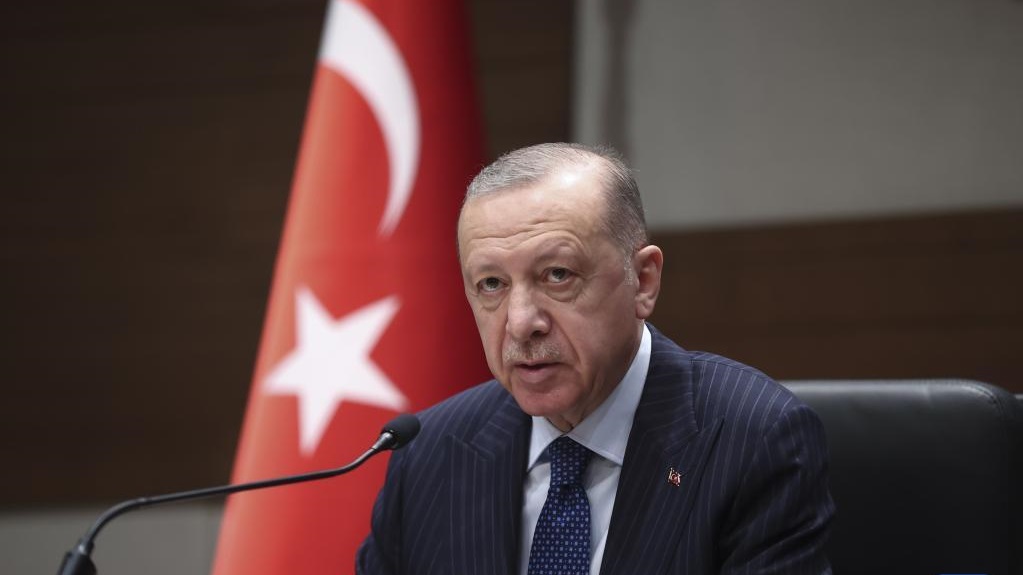Turkish president Recep Tayyip Erdoğan, on Thursday, December 22, announced a hike of nearly 55% in the minimum wage in the country from next year. The announcement was made after the Turkish government signed an agreement with the country’s trade unions, who have been demanding a sharper hike.
According to Erdoğan’s announcement, the new monthly minimum wage in Turkey will be 8,500 Turkish Lira (TL), or USD 455. The current monthly minimum wage in Turkey is TL 5,500.
The increase in wages has long been demanded by the country’s trade unions and left parties as a way to deal with the unprecedented inflation in Turkey. Inflation is now more than 80%, leading to a reduction in people’s real wages and creating an unprecedented cost of living crisis.
Despite a double digit growth rate, according to a survey conducted earlier this year, over 70% of all Turkish people now find it difficult to afford food for their families. Inflation and the corresponding fall in the value of the currency has led to a real-term reduction in their purchasing power.
Thursday’s announcement is the third such increase in the minimum wage this year. It was initially raised to 4,250 TL at the beginning of 2022, and, in June, to 5,500 TL. The latest increase means that the minimum wage is almost double what it was at the beginning of 2022.
The government claimed that this increase will help around 37% of the country’s workforce, which subsists on the minimum wage.
Some trade unions, however, have expressed apprehensions that, even after this hike, the majority of Turkish people will still not be able to meet their basic needs due to the high prices of basic commodities.
Turkey’s official year-to-year inflation rate was above 85% in October, the highest in 24 years. In November it fell, marginally, to 84.39%. Unofficial sources estimate that it is even higher than these figures, however, and could be as high as above 170%.
“Wage hike announcement is Illegal and ineffective”
Arzu Çerkezoğlu, head of the Confederation of Progressive Trade Unions of Turkey (DiSK), objected to Erdoğan’s announcement of the wage increase, claiming that he had no right to do and that it should have been the work of the Minimum Wage Determination Commission. As reported by Bianet, she suggested that Erdoğan’s move is in violation of the minimum wage regulation in the country and will not help workers but please employers.
Ergün Atalay, head of the Confederation of Turkish Trade Unions (Turk iS), did not attend Erdoğan’s press conference after demands for an increase in the minimum wage to TL 9,000 were not accepted, Bianet reported.
The Turkish Communist Party (TKP) also issued a statement criticizing Erdoğan’s move. It claimed the increase in wages would be insufficient in the context of high inflation in the country and said that Erdoğan’s Justice and Development Party (AKP) was trying “to pretend to manage the expectations and demands of the workers without upsetting the bosses” since elections are set to take place soon.
Experts opine that, apart from the war in Ukraine and post-Covid economic recovery, the high inflation in Turkey is mostly a factor of Erdoğan’s unconventional economic policies, which have been based on low borrowing rates and have caused a loss in the value of Turkish Lira. In September 2021, 8 TL were equal to one US dollar. By December 2022, 19 TL were equal to the worth of one US Dollar.
During the press conference at which the wage increase was announced, Erdoğan also promised that inflation in the country would sharply decline from the beginning of next year.
Critics have called the move an attempt to influence the elections scheduled for the middle of next year. Erdoğan, in power for almost two decades, faces a tough challenge as the opposition attempts to put on a united front. According to some surveys conducted, Erdoğan and his AKP might fall short of a majority in next June’s elections.





